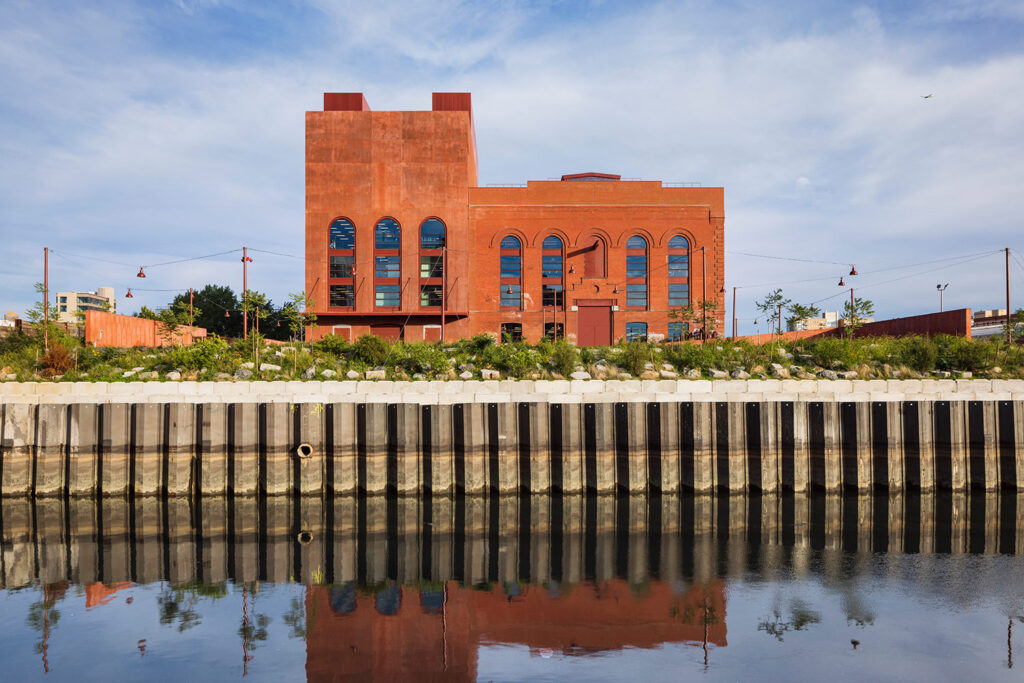
Port of Tyne Decarbonisation Study
South Shields, UK
Project details
Client
Port of Tyne Authority
Duration
2022-2023
Services provided by Buro Happold
The Port of Tyne in South Shields is one of North-East England’s key ports, with 3km of berths for shipping, supporting more than 12,000 jobs and indirectly contributing £621m to the UK economy annually.
Challenge
In the face of the climate emergency and rising global energy prices, the Port is keen to advance its vision of a low carbon future as swiftly as possible. The organisation has set itself the goal of being operationally carbon neutral by 2030, and aims to be fully electrical by 2040.
The Port covers 620 acres (250 hectares) that stretch out from the river on both the north and south side of the Tyne. Many of the buildings across this expansive site currently use fossil fuelled boilers to provide heating.
Buro Happold was engaged to work with the Port to develop a bespoke decarbonisation study that would set it on the pathway to meeting its ambitious targets. The study will primarily focus on renewable energy generation – both in terms of solar and wind – as well as 19 building surveys focused on the decarbonisation of assets.
A key challenge involves developing a no-regrets and modular renewable implementation programme. This will reduce grid power dependency not only for current demands, but also for the future as the port electrifies its operations (i.e. vehicles), reducing on site fossil fuel combustion
The site imports and exports a broad range of goods, from wood chips to tea to Volkswagen and Nissan cars. The decarbonisation strategy needs to take into account this breadth of spaces, operations and building typologies dictated by the different kinds of goods being imported and exported. The buildings and energy users range from offices to large warehouses, cranes and giant grain hoppers to transportation hubs.

Solution
A key role of the study is to analyse what is currently happening on the site and where the Port’s energy consumption is focused. From this, an impactful energy strategy can be developed that sets out the pathway for the onsite generation of renewables.
We are looking at the use of solar PV panels on roofing as well as the potential for installation of solar PV canopies, which could run across the great swathes of car holding spaces across the site. The Port handles around 600,000 cars and vans a year, which means the site has many acres of car holding.
Our experts are also scoping opportunities for deploying wind turbines on the site, advising the client on the range of technical and planning challenges this entails, and producing a robust and modular implementation strategy which considers minimal impacts to site operations.
The study will also look at the potential for the Port to roll out electrical vehicle charging across the site – not just for smaller vehicles, but also for larger vehicles such as lorries, on-site transporters and cranes. It also looks at providing future “shore-power” for vessels –electrical connections to ships at berth, allowing them access to renewable energy.
These initiatives will provide huge carbon and cost savings against grid supplied power as well as potential for further revenue from the export of power.
The electrification of the site will need to be carefully phased in order to ensure the generation meets the demand. The study will set out a modular approach to the phased build-up of renewable generation on the site. Our team will also examine the requirements around developing battery facilities to store renewably-generated energy on-site to ensure sufficient capacity during peak times.

Value
Our team brings a wealth of experiences on similar decarbonisation projects for large-scale assets, including ports.
The study will help the Port to understand what it will take to transition away from fossil fuel combustion across the site. Alongside this our experts are supporting the client to plan a phased growth of renewable generation infrastructure. These two workstreams will come together to support the client to achieve its ambitions for achieving net-zero carbon operations.














